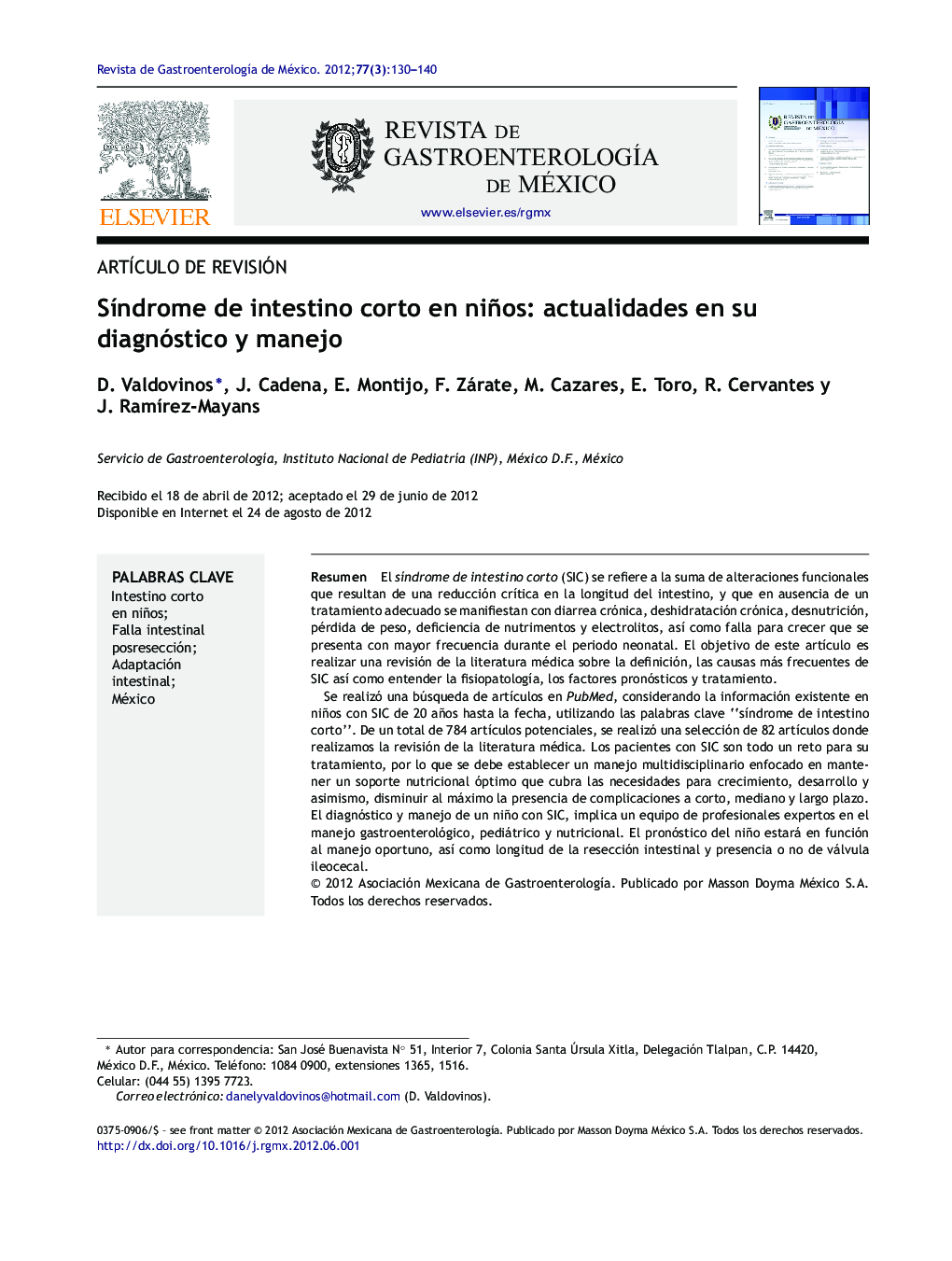| Article ID | Journal | Published Year | Pages | File Type |
|---|---|---|---|---|
| 3318982 | Revista de Gastroenterología de México | 2012 | 11 Pages |
ResumenEl síndrome de intestino corto (SIC) se refiere a la suma de alteraciones funcionales que resultan de una reducción crítica en la longitud del intestino, y que en ausencia de un tratamiento adecuado se manifiestan con diarrea crónica, deshidratación crónica, desnutrición, pérdida de peso, deficiencia de nutrimentos y electrolitos, así como falla para crecer que se presenta con mayor frecuencia durante el periodo neonatal. El objetivo de este artículo es realizar una revisión de la literatura médica sobre la definición, las causas más frecuentes de SIC así como entender la fisiopatología, los factores pronósticos y tratamiento.Se realizó una búsqueda de artículos en PubMed, considerando la información existente en niños con SIC de 20 años hasta la fecha, utilizando las palabras clave “síndrome de intestino corto”. De un total de 784 artículos potenciales, se realizó una selección de 82 artículos donde realizamos la revisión de la literatura médica. Los pacientes con SIC son todo un reto para su tratamiento, por lo que se debe establecer un manejo multidisciplinario enfocado en mantener un soporte nutricional óptimo que cubra las necesidades para crecimiento, desarrollo y asimismo, disminuir al máximo la presencia de complicaciones a corto, mediano y largo plazo. El diagnóstico y manejo de un niño con SIC, implica un equipo de profesionales expertos en el manejo gastroenterológico, pediátrico y nutricional. El pronóstico del niño estará en función al manejo oportuno, así como longitud de la resección intestinal y presencia o no de válvula ileocecal.
Short bowel syndrome (SBS) refers to the sum of the functional alterations that are the result of a critical reduction in the length of the intestine, which in the absence of adequate treatment, presents as chronic diarrhea, chronic dehydration, malnutrition, weight loss, nutriment and electrolyte deficiency, along with a failure to grow that is present with greater frequency during the neonatal period. The aim was to carry out a review of the literature encompassing the definition and the most frequent causes of SBS, together with an understanding of its physiopathology, prognostic factors, and treatment.An Internet search of PubMed articles was carried out for the existing information published over the last 20 years on SBS in children, using the keywords “short bowel syndrome”. From a total of 784 potential articles, 82 articles were chosen for the literature review. The treatment of patients presenting with SBS is quite a challenge and therefore it is necessary to establish multidisciplinary management with a focus on maintaining optimal nutritional support that covers the necessities of growth and development and at the same time provides a maximum reduction of short, medium, and long-term complications. The diagnosis and treatment of a child with SBS require a team of professionals that are experts in gastroenterologic, pediatric, and nutritional management. The outcome for the child will be directly related to opportune management, as well as to the length of the intestinal resection and the presence or absence of the ileocecal valve.
